Why Don't Supermarkets Sell Prime Beef Anymore?
The Surprising Truth Of Your Grocery Store'southward Butcher Counter
A well-stocked butcher counter is a meat-loving cook'southward paradise, total of endless possibilities. Restaurant-quality steaks, marbled rib roasts, free-range chicken — it's all there at your fingertips, ready to turn into the meal of your dreams. And since you're buying fresh meat, poultry, and seafood, you presume y'all're getting the best of the best. Unfortunately, if you lot dig a picayune deeper y'all might find some unsavory truths hiding behind that glass case.
Merely don't worry — it'southward not all bad. One time you go past the pesky poop-in-the-ground-beef situation, there are tips and tricks that can salvage you time and money (assuming you oasis't decided to go a vegetarian in the wake of all your new-plant cognition). Even though some of these tidbits might be difficult to consume, hither'southward what yous need to know nigh the grocery store butcher counter.
At that place'south probably poop in your ground beef
Cheers to a Consumer Reports investigation, we now know that just about all ground beef "contains leaner that signifies fecal contamination." That'south right, folks — poop. Of the 458 pounds of ground beef tested, not one test came back sans poop. And yes, sorry, that includes organic, grass-fed varieties. The introduction of the leaner comes from the slaughtering procedure, where fecal affair can brand its manner from other parts of the cow to the carcass. This becomes an issue with ground beef (versus larger cuts of beef) because the bacteria gets incorporated throughout the meat, making it harder to melt to a loftier enough temperature to kill what might be lurking in the middle. And then while a juicy rare burger might be your get-to lodge, you lot're likely getting a little more than you bargained for — and it'due south probably not the clandestine ingredient you were hoping to uncover.
And at that place'due south poop in your basis turkey
Because Consumer Reports apparently likes to nuance all of our ground meat dreams, they've besides got bad news near ground turkey. That's right — in that location's probably poop in your ground turkey, too. In their assay, more than than half the packages tested positive for fecal bacteria. Only that'due south meliorate than 100 percent (ahem, ground beef!), right?
That vivid red beef may not be as fresh as y'all think
Packages of meat are often treated with carbon monoxide, which is used as a color stabilizer, to give beef that vivid carmine, juicy appearance. Because this handling can affect the meat for several weeks, the color should non be used as an indicator of freshness lone. Become by the sell-by engagement on the package (though you're virtually to learn some bad news nigh that, too), and trust your olfactory organ. A spoiled steak will smell horrible, even if it is brilliant red.
Expiration dates might not mean anything
I of the best places to score a bargain is the "manager'southward special" section at the butcher counter. But it turns out that those half-price packages expiring "today" might actually hateful "yesterday" or "last week." Because grocery stores ofttimes package their own meat, they're in control of the sell-by dates, and if they recall a steak is still sellable after its date, they tin give it a new one, just like that. Once again, your nose is your friend when it comes to meat.
Butchers can be shady
According to one Redditor, who claims to exist a butcher in a grocery store, at that place might be some shady practices going on in the meat department, and most of them will result in yous spending more coin. Hither'southward what to watch for: "Stores will do everything from grinding ice in with the beef (to pump upwards the weight), endeavor to put extra stuff on the scale, counterbalance the meat after it's packaged, or sell ane cutting of beef as something better." The moral of the story? Be extra nice to your butcher.
The meat might be misted with Windex
One Chowhound user has sworn off meat from their grocery shop butcher counter for i reason: Windex. In this butcher counter horror story, the affiche claims to have watched an employee lift the meat case open from the forepart and spray the inside of the glass with Windex, effectively misting all the fresh meat at the same time. Now whether or not a light sprinkle of Windex on your steak will do you harm is beside the signal — I think we tin can all agree that nosotros'd prefer our meat exist free of blue cleaning solution.
"Angus" doesn't necessarily mean "improve"
If you're making a beeline for the Angus beef because you lot call back it'southward ameliorate quality, think once more. The term "angus" has nothing to practice with the grade of the meat — it'south actually the breed of cow. To ensure that you're getting top quality beefiness, expect for the USDA shield instead. This label indicates the meat grade of "prime," "option," or "select." When you actually desire the good stuff, go for the prime number.
You might be paying a lot more for the "fresh" seafood
Though you think you're buying fresh seafood at the butcher counter, it is usually previously frozen and defrosted (pay attending to the labels!). According to Phil Lempert, grocery industry proficient, you can usually buy the same seafood in the frozen section for up to 40 percent less.
A whole lot of fish is mislabeled
Fish fraud is rampant nationwide. Co-ordinate to a report from bounding main conservation advancement organization Oceana, "seafood may be mislabeled as often equally 26 to 87 pct of the time for commonly swapped fish such as grouper, cod and snapper, disguising fish that are less desirable, cheaper or more than readily available." The report, which included grocery stores, shows the importance of request questions and learning where your seafood is coming from. Some stores are now providing traceability, meaning they know exactly how the fish got from boat to butcher counter. 1 of the easiest ways to tell if your fish is fake? The price. If the fish is half the price of what information technology normally is, there'southward probably a reason.
In that location's a secret to getting cheap filet mignon
If yous're peckish a filet mignon but the price tag is holding yous dorsum, buy a T-bone steak instead. On one side of the bone is a perfectly succulent New York strip, and on the other side is a filet. You'll save up to $5 a pound with this butcher counter hack.
The butcher will practice a lot for y'all
Another fashion to save some money on your grocery beak: buy larger cuts of meat and whole chickens, then ask the butcher to break it downwards for yous. Often times the price per pound is much cheaper than buying meat that has already been processed.
You can also ask your butcher to debone or grind meat and necktie up roasts. Some stores will even season meat and poultry with rubs. All y'all have to do is ask.
The chicken could brand y'all sick
Later a staggering 25 percentage of chicken pieces were found to have salmonella bacteria, sickening an estimated one million people a twelvemonth, the USDA has imposed new safety measures to reduce the bacteria in poultry. The new guidelines aim to reduce illnesses by 30 percent, which means there is still enough of salmonella floating around out there. The best fashion to baby-sit against the leaner is to ensure chicken is cooked to an internal temperature of 165 degrees.
Your steaks might be mechanically tenderized
To brand steaks more than tender, raw beefiness is often run through a machine which pierces the meat with tiny needles. This process is called mechanical tenderization, and it is not required to exist disclosed on the packaging. The problem with this process is that the needles tin can force bacteria within the meat, and if you're a rare steak lover, this could pose a trouble. Typically, any bacteria nowadays on the meat surface volition get killed in the cooking process, simply if the internal temperature doesn't go high enough, whatsoever bacteria introduced in the tenderizing process could remain. Yous can't tell if meat has been mechanically tenderized by looking at it, then ask your butcher if you intend to have a bloody steak for dinner.
Source: https://www.mashed.com/102403/surprising-truth-grocery-stores-butcher-counter/
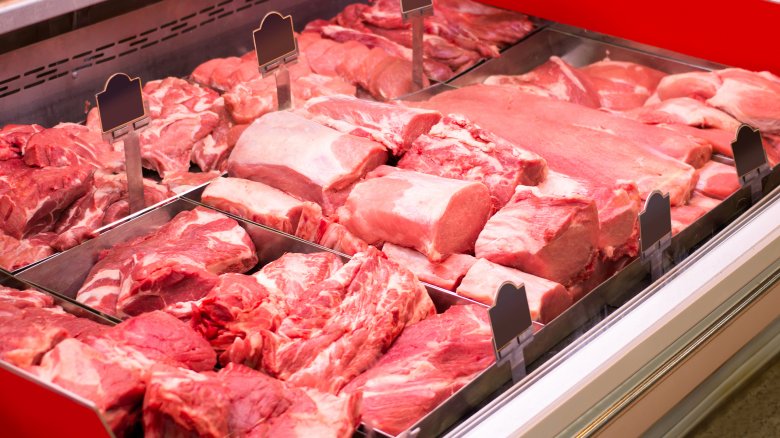
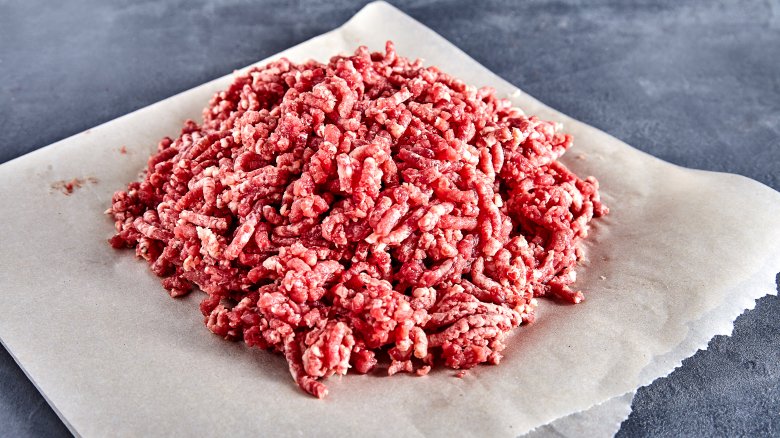
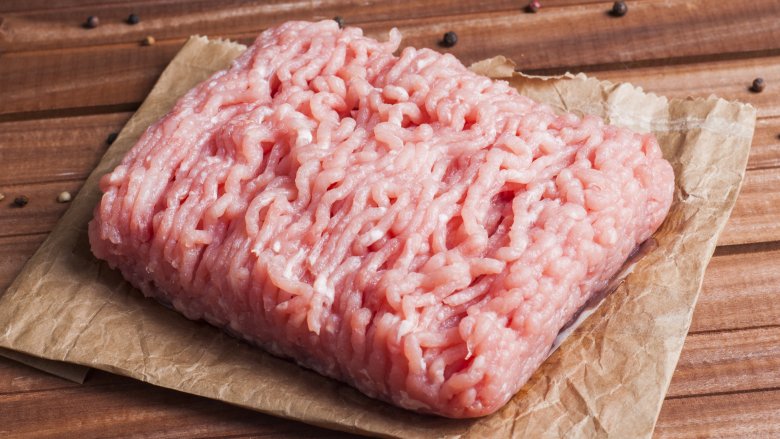
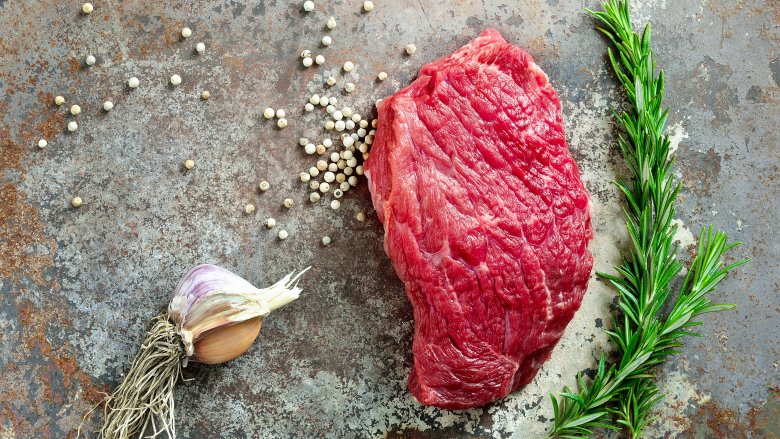
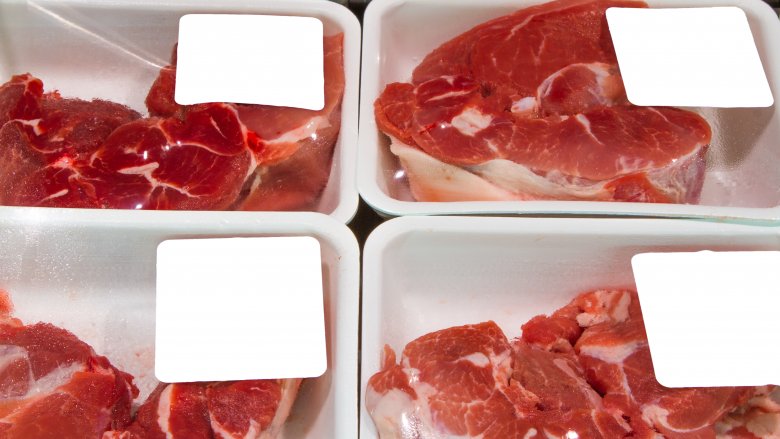
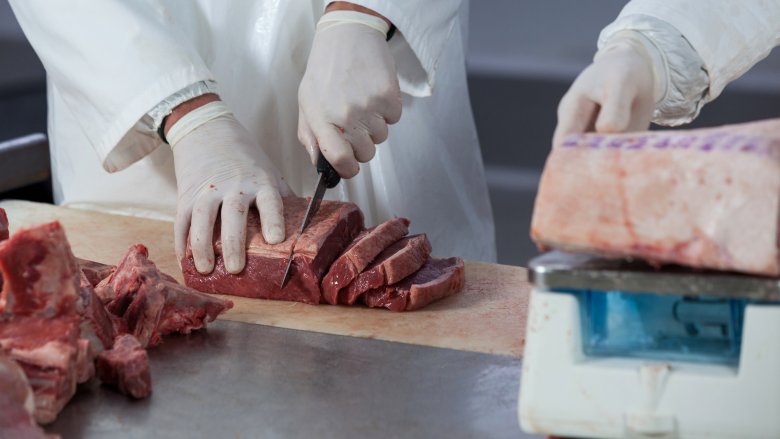
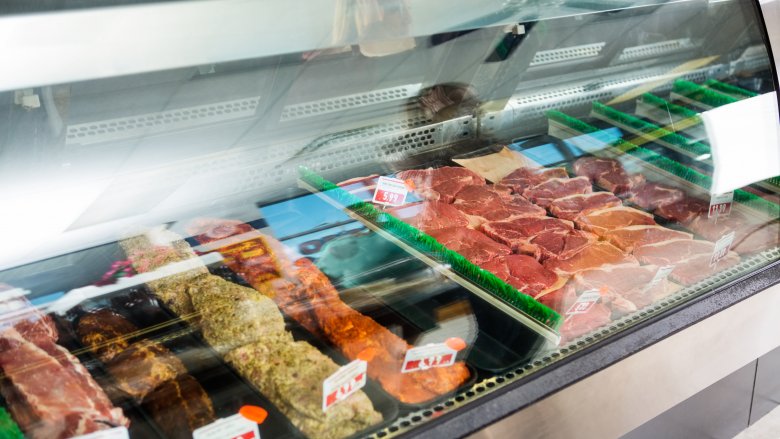
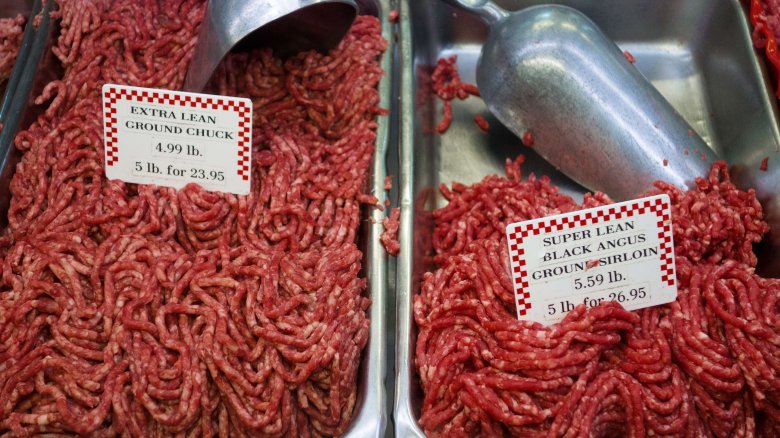


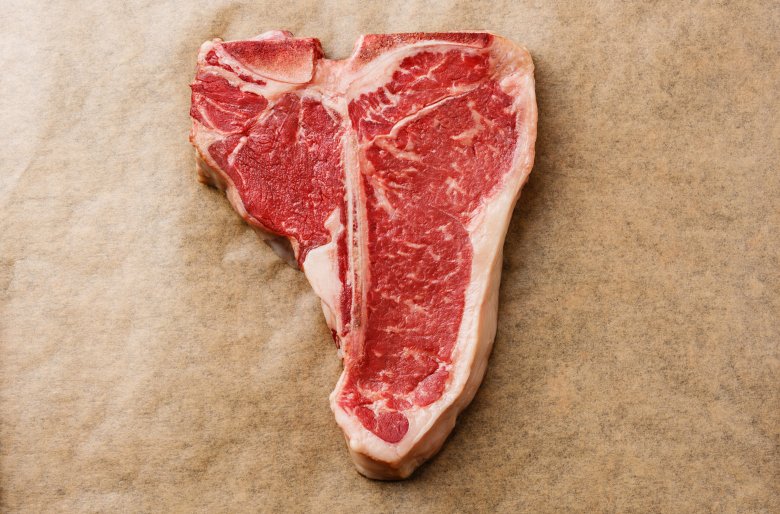
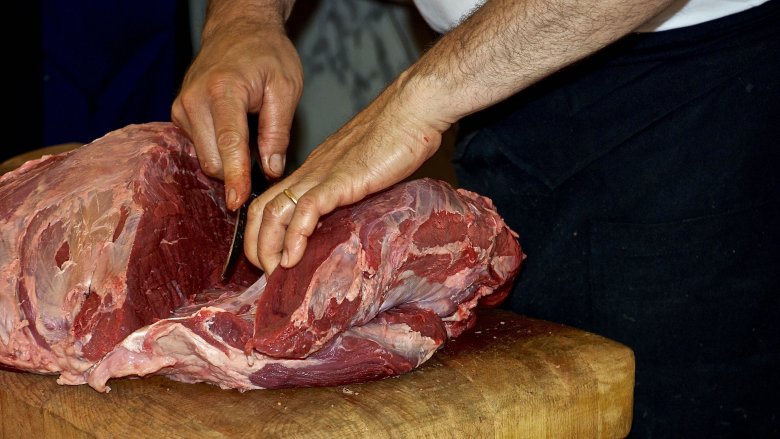
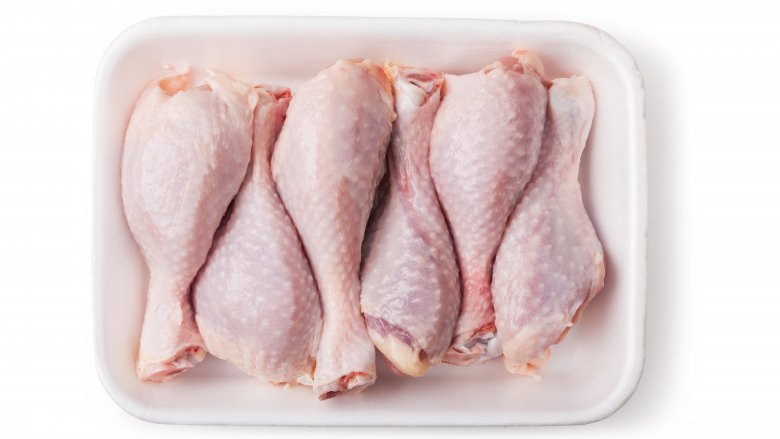
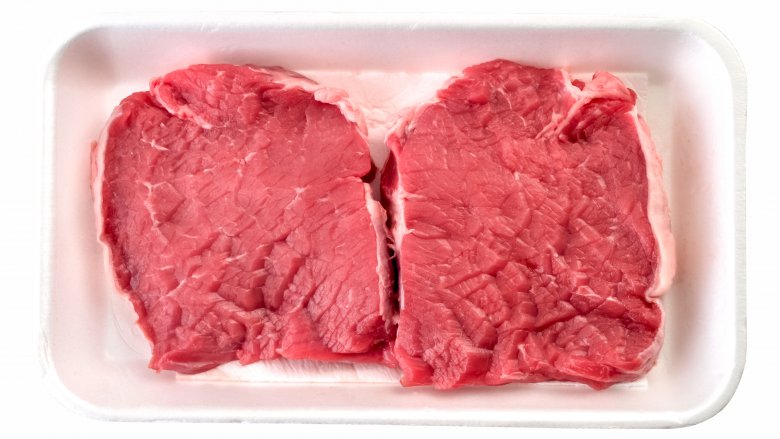
0 Response to "Why Don't Supermarkets Sell Prime Beef Anymore?"
Publicar un comentario